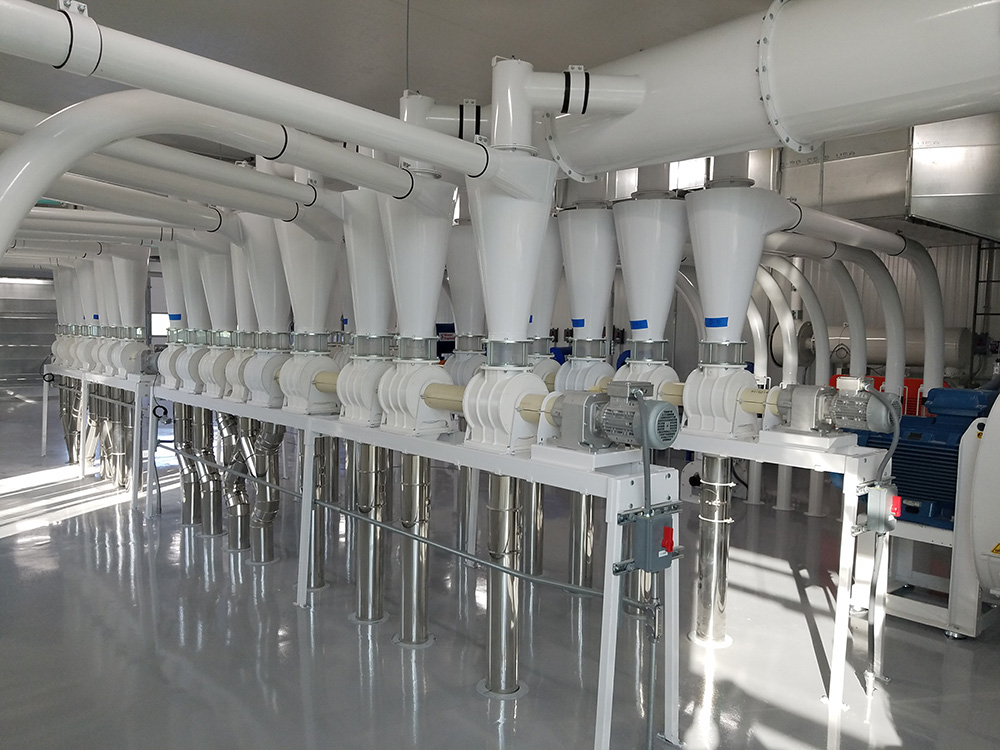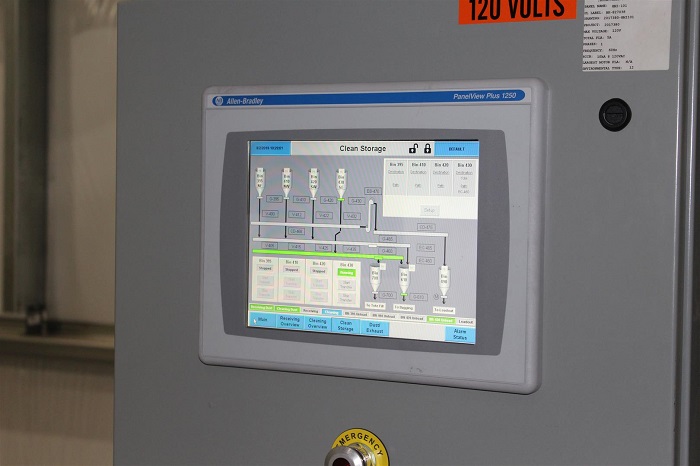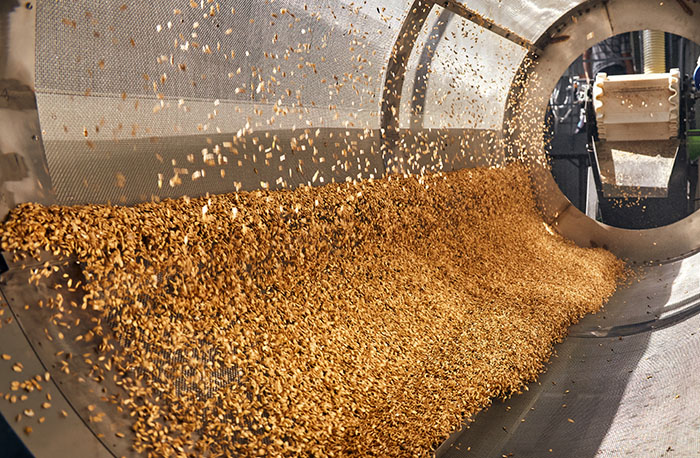Maintaining Consistent Flour Quality with Automated Processing Equipment
Written by: Bratney

Flour milling is a complex process that transforms raw grain into the versatile flour we use in countless food products. From cleaning and sorting to milling and packaging, each step in the process requires precision and reliability to ensure the end product meets industry standards. Any variation can affect everything from taste to baking performance. Automated processing equipment plays a vital role in ensuring milling operations not only meet but exceed industry standards, allowing millers to deliver top quality flours with confidence.
Key Areas for Automation in Flour Milling
Automation is truly changing the industry, allowing for greater accuracy and efficiency. There are numerous opportunities for implementing automation into the flour milling processes.
Cleaning and Sorting
Automated equipment like cleaners, scourers, and color sorters ensure that grain is thoroughly cleaned and sorted before the milling process. These remove any impurities that could compromise the quality of the final flour product.
Tempering and Conditioning
Proper moisture content is incredibly important for milling efficiency. Automated systems guarantee that grain is tempered and conditioned to perfection, optimizing the milling process and producing consistent results.
Grist Formulation and Milling
Grist is the mixture of grains or cereals that have been cleaned, conditioned, and prepared for milling into flour. Automating mix and blend systems and roller mills allow for accurate grist formulation and consistent milling performance, eliminating the guesswork. This greatly reduces human error and ensures uniformity across every batch.
Flour Blending and Packaging
By automating flour blending and packaging systems, you can achieve seamless production with minimal errors in the final stages of production. Automation helps ensure every bag of flour meets high standards and is ready for distribution.
Benefits of Automated Processing Equipment
Using automated processing equipment for flour milling can deliver several important benefits.
Consistent Quality
Automation reduces the likelihood of human error, resulting in more consistent flour quality. Additionally, real-time monitoring of automated equipment allows millers producers to make immediate adjustments to ensure each batch meets strict quality standards.
Optimized Production
Because automated systems can operate continuously, they help to increase throughput and reduce downtime. This leads to higher productivity and the ability to meet growing demand.
Increased Energy Efficiency
Modern equipment is designed with energy efficiency in mind, helping you reduce operational costs while supporting sustainability initiatives.
Enhanced Safety
With their easy-to-clean designs, automated systems minimize contamination risks, ensuring your products meet food safety regulations and maintain consumer trust.
Implementing Automated Solutions
Millers who wish to implement automated solutions don’t need to build a brand new facility. Instead, existing processes can be assessed to pinpoint inefficiencies and inconsistencies. By conducting a thorough evaluation of their existing facilities, millers can identify areas where automation can add the most value.
Once there is a clear understanding of what is needed, millers they can choose the best equipment to enhance their operations. Then, they must ensure the new machines are properly installed and integrated into the operation and that employees are properly trained to use them. Training staff to appropriately operate and maintain new automated systems is crucial to ensuring they run at peak efficiency.
Considerations for Choosing Automated Equipment
There are several things to consider when deciding what automated equipment is best for your facility.
- Scalability and future expansion: Invest in equipment that can grow with your business, allowing for future expansions and increased capacity.
- Energy efficiency: Prioritize energy efficiency when purchasing new machinery. By selecting highly efficient equipment, you can lower operational costs and reduce your environmental footprint.
- Sanitary design: Choose equipment that’s designed with a focus on hygiene. Not only does this simplify cleaning processes, but it also helps ensure compliance with food safety standards.
- Ease of maintenance and support: Opt for automated systems that have straightforward maintenance and come with reliable support when you need it. This minimizes downtime, keeping operations running smoothly.
The Role of Partnerships in Automation
Strong partnerships are the foundation of successful automation projects. Collaborating with equipment providers can help make sure solutions are tailored to the specific needs of your unique mill. Partnering with a professional can also give you access to continuous support and training, which is essential for maximizing the benefits of automation. By building a strong, long-term relationship with an industry-leading equipment supplier, you can make ongoing improvements and innovations that keep your facility ahead of the curve.
Future Trends in Flour Milling Automation
The future of flour milling is bright, and exciting trends are on the horizon. In this industry driven by innovation, automation will continue to play a pivotal role.
Advanced Sensors and Real-Time Monitoring
Advanced sensors allow for even more accurate real-time monitoring and control to make sure milling processes and product quality stay consistent.
Artificial Intelligence
As in many other industries, AI is paving the way for smarter milling operations. AI and machine learning can be used to predict issues before they affect operations or product quality and make automatic adjustments to prevent problems.
Integration with Industry 4.0 Technologies
The future of flour milling lies in fully integrated, smart facilities where all systems communicate seamlessly for optimal efficiency.


